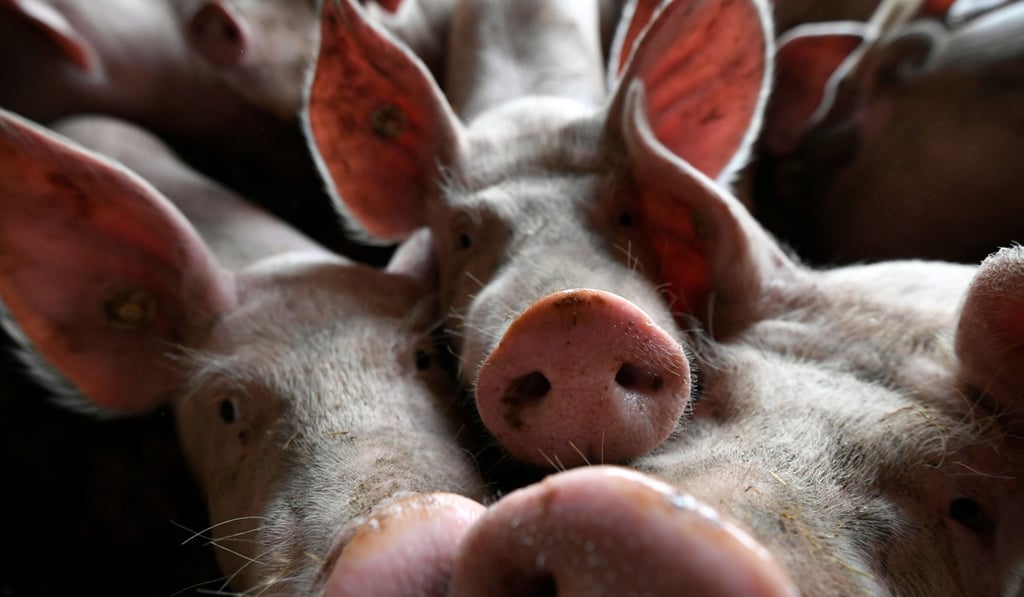In the Philippines, will African Swine Fever be the Grinch that stole Christmas ham?
- A Filipino Christmas without ham is like an American Thanksgiving without turkey, but public fears over the disease have led to bans and restrictions
- While a trade group says processing pork kills the virus, experts say the negative sentiment ‘endangers’ the US$5.75 billion industry

Reports of ASF-infected pigs dying or being culled in large numbers have led to a drop in demand for pork products. The disease does not affect humans, but local governments in several provinces have banned pork and processed meats – and the worst casualty could be the holiday ham.
“Usually by September or October, processed meat manufacturers are already building up ham production,” said an industry analyst who uses the pen name David Ramirez. “Creating one piece of ham requires several tedious processes, but what if you produce hams and nobody buys them? If companies buy raw materials now, they might go bankrupt.”
A Christmas without ham is sad, it’s like America’s Thanksgiving without the turkey
“A Christmas without ham is sad, it’s like America’s Thanksgiving without the turkey,” said Manuel Mogato, a Pulitzer prize-winning journalist.
The ham is served on noche buena, the Christmas Eve meal, and is brought out again on Christmas Day for a feast that usually involves a large family gathering.

Filipinos consume all kinds of ham: sweet, salty, dried, smoked, drowned in syrupy pineapple glaze, whole or sliced. The meat is served by itself as an appetiser, or with fried rice, and put inside soft, fluffy bread rolls called pandesal. Ham bones are even sold separately, to be used as a base for Spanish-style stews.